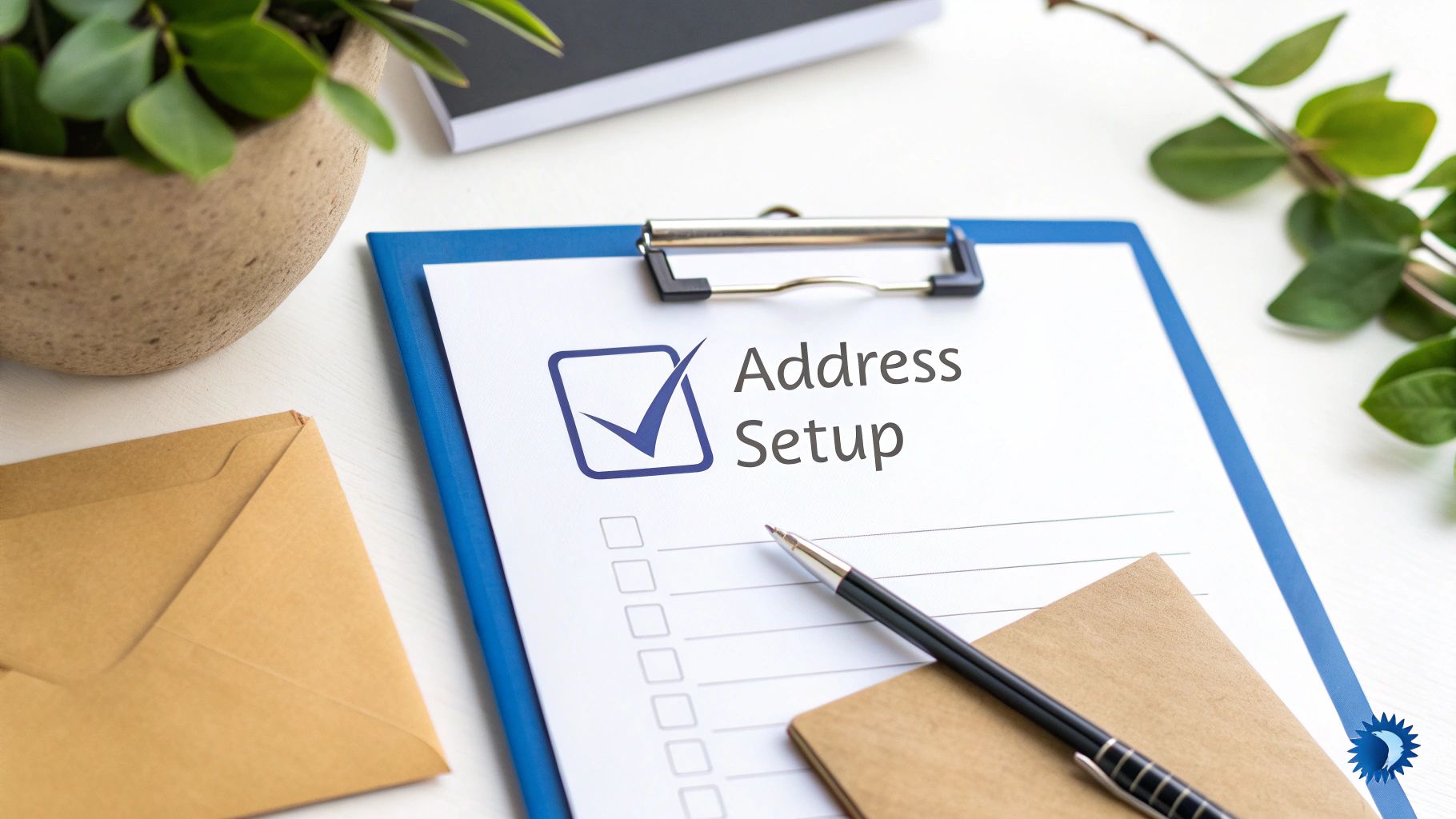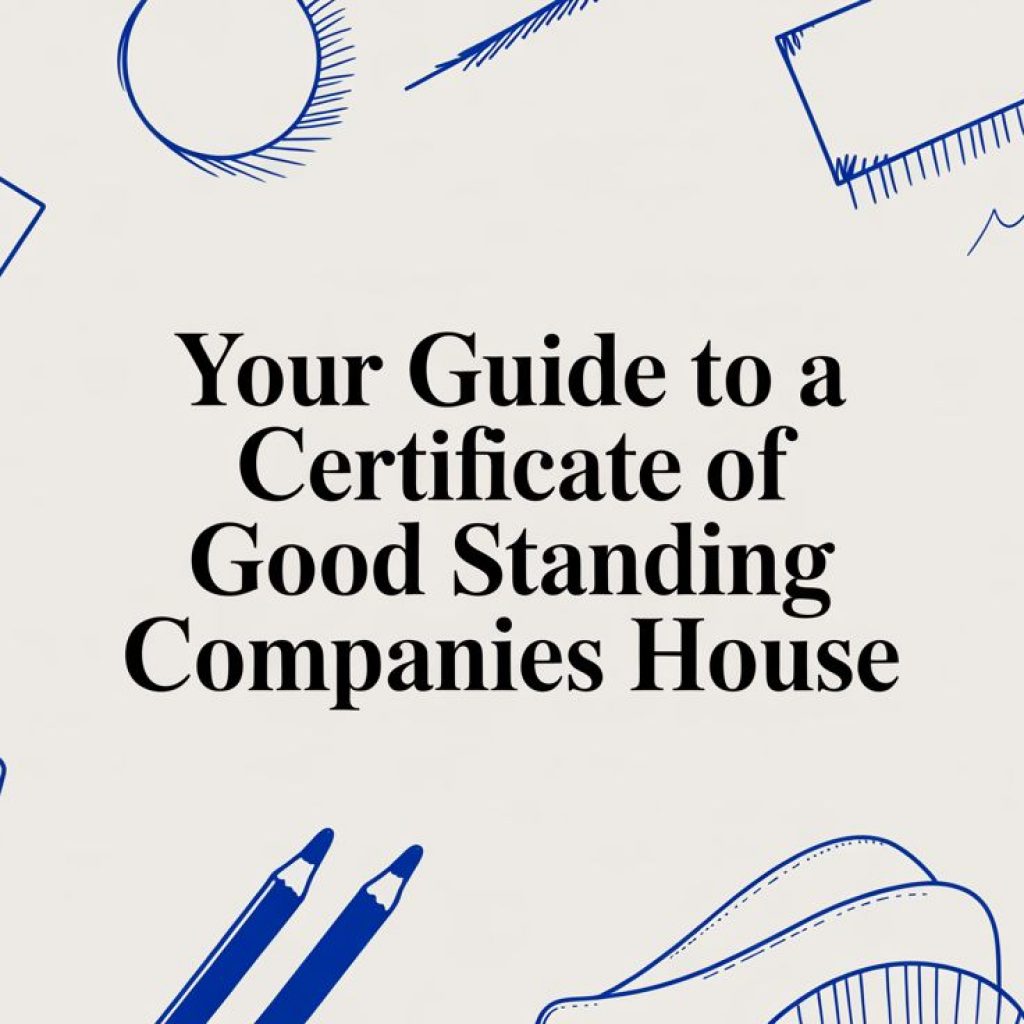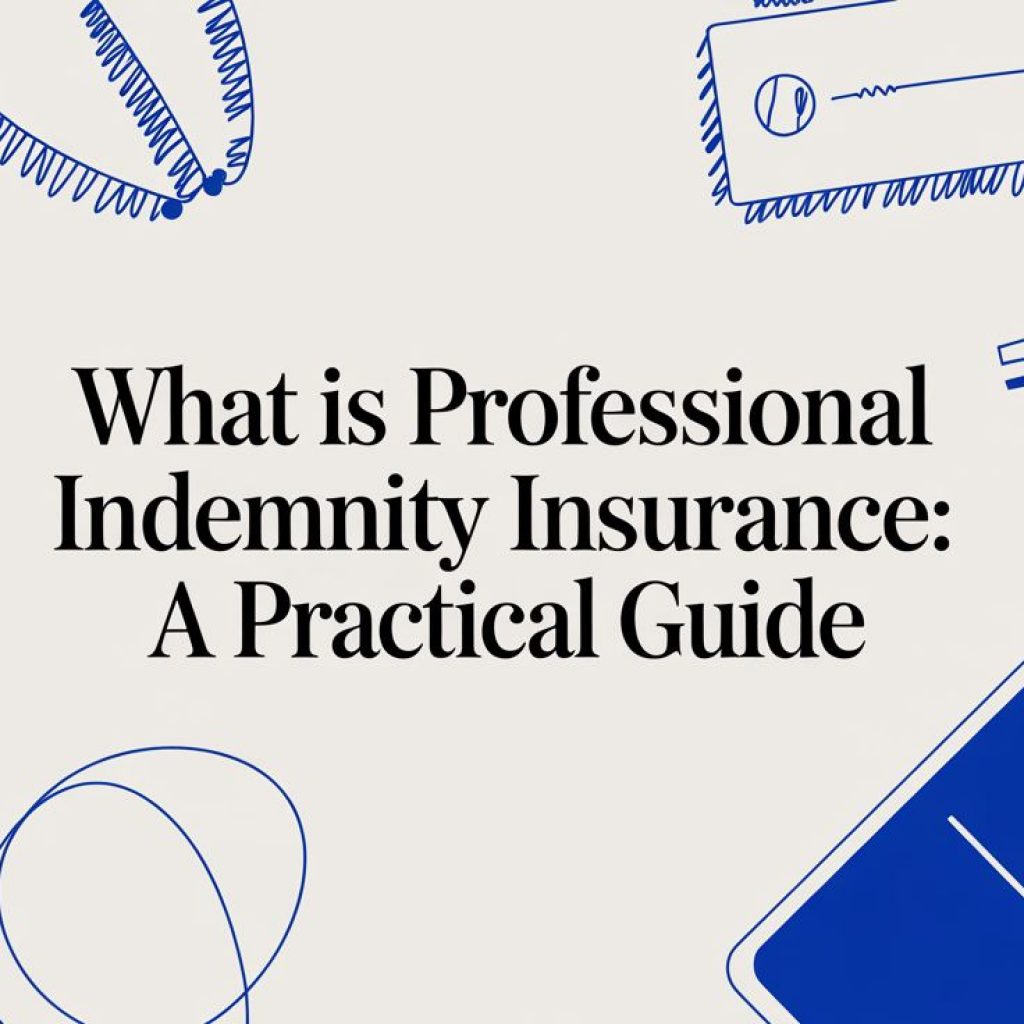Business Address for Sole Trader
Business Address for Sole Trader – When you’re a sole trader, your business address is the official spot where all your professional mail lands. Think of it as the central hub for any documents coming from clients, your bank, and, of course, HMRC. Even though you and your business are technically the same legal entity, this address is a huge part of carving out your professional identity.
What a Business Address Means for Your Sole Trader Venture

Think of your business address as your professional handshake. It’s often the first official detail a potential client or partner sees, and it immediately sets the tone for how they perceive your business. For a UK sole trader, that one line of text does a lot of heavy lifting.
This address is far more than just a place to get post delivered; it’s a cornerstone of your business identity. You’ll see it everywhere—from your invoices and website to your tax returns and marketing flyers. For a practical example, a freelance graphic designer will have it on their quotes, and an online seller will use it to set up supplier accounts.
Your Public-Facing Identity
Here’s the crucial bit: the address you register becomes public information. Anyone who looks up your business or sees your official paperwork will find it. This has massive implications for your privacy, especially if you’re running your business from your kitchen table.
Getting this right from day one is absolutely essential. The address you choose will directly impact:
- Professionalism: A residential address can sometimes suggest a small-scale, hobbyist operation, whereas a commercial one projects a more established and serious image.
- Privacy: Putting your home address out there means your personal space is no longer private.
- Legal Standing: You must have a reliable address where official documents, like notices from HMRC, can be legally served and received by you.
Choosing your business address isn’t just a box-ticking exercise; it’s a strategic decision that shapes your brand’s credibility and protects your personal life right from the start.
Why Your Business Address Is Critical for Success

Choosing a business address for a sole trader isn’t just a box-ticking exercise; it’s one of the first strategic decisions you’ll make. This single piece of information sends a powerful signal to potential clients, banks, and official bodies, shaping their perception of your business from the get-go. It’s a foundational element that underpins your credibility, protects your privacy, and keeps you on the right side of the law.
The UK is a nation of entrepreneurs. In fact, single-person operations make up around 74.05% of all private sector businesses. For this massive community of sole traders, getting the address right from day one has a ripple effect on everything from landing that first big client to staying compliant with HMRC. You can learn more about the makeup of UK businesses and see just how vital this choice is for millions of people.
Build Professional Credibility
First impressions count for everything. Imagine you’re a freelance consultant pitching for a major corporate contract. An address in a recognised commercial district, like “25 City Road, London”, instantly projects stability and professionalism. It can genuinely be the small detail that helps you win the work over a competitor whose invoice simply says “12 Cherry Tree Lane, Suburbia”. It subtly tells clients you are established, serious, and ready to do business.
This isn’t just about perception; it’s about trust. A professional address helps you shake off the “small-time, home-based” label and builds the confidence needed to attract bigger projects and higher-paying clients.
Protect Your Personal Privacy
Using your home address for business puts your private life on public display. It will appear on your invoices, your website, and on public registries that anyone can search. If you’re an online seller on a platform like Etsy or your own Shopify store, this could mean disgruntled customers knowing exactly where you and your family live—a completely unnecessary security risk.
Actionable Insight: Separating your home and business addresses is one of the simplest and most effective ways to build a wall between your professional and personal life. It safeguards your privacy and gives you much-needed peace of mind.
Ensure Legal and Tax Compliance
Finally, your business address is a non-negotiable legal requirement. Government bodies like HMRC need a reliable, official address to send you critical mail. We’re talking about tax reminders, legal notices, and other essential documents that you cannot afford to miss.
If these vital letters get lost in a pile of household post or mixed up with junk mail, you could face hefty fines or find yourself in serious compliance trouble. A dedicated business address ensures every important document lands safely where you expect it, every time.
Right, so you’re a sole trader and you need a business address. This seems simple enough on the surface, but it’s a decision that really matters. You’re juggling cost, privacy, and how professional you want to look to the outside world.
Every option strikes a different balance, and what’s right for one person might be completely wrong for you. It all boils down to your specific situation, your budget, and the industry you’re in. Let’s walk through the main choices you’ve got.
Using Your Home Address
This is the go-to for most people when they’re just starting out. It costs absolutely nothing and there’s zero setup involved, making it the path of least resistance. You can register with HMRC using your home address with no problems at all.
But here’s the catch: that convenience comes at a big price – your privacy. Plastering your home address across public records, invoices, and your website completely blurs the line between your personal and professional life. For many, that’s a deal-breaker.
Renting a PO Box
A Post Office Box is a step up. It gives you a separate mailing address, which is great for keeping your business post organised and away from your personal mail. It’s a fairly low-cost way to stop using your home address for everyday letters from customers or suppliers.
The main snag, though, is that a PO Box isn’t a proper street address. This means you can’t use it for official registrations with HMRC or as your legal service address, as those bodies need a physical place where documents can be hand-delivered if needed. It can also look a bit less polished to potential clients.
Setting Up a Virtual Office Address
Now we’re talking. A virtual office gives you a real, professional street address in a proper commercial building, but without the eye-watering cost of renting an actual office. It’s a fantastic middle-ground, giving you a sharp, professional image while keeping your home address under wraps.
These services usually include mail forwarding, where they receive your post and send it on to you. If you want to get into the nuts and bolts of it, you can explore the benefits of a virtual mailing address right here. It’s a solution that can easily grow with your business.
A virtual address lets you project the image of an established city-centre business, even if you’re actually working from your spare room. It instantly boosts credibility while keeping your home life completely separate and secure.
Acorn Business Solutions range of virtual mailing address services can be ordered quickly and easily online, with same business day setup when ordered before 2pm.
- Mailbox Rental – Mail received will be held in branch for you to collect
- Mail Forwarding – Mail received will be forwarded onto an alternative address of your choice
- Mail Scanning – Mail received will be scanned and uploaded to your online account.
Renting a Physical Office
For some businesses, there’s no substitute for a physical space. For example, if you’re a photographer who needs a studio, a therapist who needs a private consulting room, or you simply hold stock, then renting a dedicated office is the top-tier solution. It gives you the highest level of professionalism and creates a crystal-clear separation between work and home.
Of course, this is by far the most expensive route. You’re not just paying rent; you’ve got business rates, utility bills, and other overheads to think about. This option is typically for more established sole traders with a steady income, not someone just kicking things off.
Acorn Business Solutions virtual mailing address services have the ability to upgrade to physical office space as you grow to, or you can rent physical space as and when needed from as little as 1 hour.
Sole Trader Business Address Options Compared
To make things a bit clearer, here is a simple table to help you weigh up your options at a glance. It breaks down the key differences in cost, privacy, and the professional image each one projects.
| Address Option | Typical Cost | Privacy Level | Professionalism | Best For |
|---|---|---|---|---|
| Home Address | Free | Low | Low | New starters on a minimal budget. |
| PO Box | Low | Medium | Medium | Organising general mail, but not for official use. |
| Virtual Office | Moderate | High | High | Balancing professionalism, privacy, and cost. |
| Physical Office | High | High | Very High | Established businesses needing a physical space. |
Ultimately, the best choice depends on where you are in your business journey. What works today might not work in a year’s time, so it’s always good to pick a solution that gives you room to grow.
Understanding Your Legal and HMRC Address Requirements
When you’re a sole trader, figuring out the official rules for your business address can feel a bit tangled. But it really just boils down to two key things: keeping HMRC happy and following general business law. Get these right, and you’re set up for a smooth, legal operation from day one.
First up, HMRC. When you register for Self Assessment, they need a reliable correspondence address. This isn’t optional. It’s where all the important stuff lands – your Unique Taxpayer Reference (UTR), tax reminders, and any questions they might have. Miss one of those letters, and you could be facing penalties. So, a consistent, stable address is non-negotiable.
Public and Legal Obligations
Beyond your tax duties, UK regulations say you have to show an address on key business documents. This isn’t just for looks; it’s a legal requirement that builds transparency and holds you accountable.
Your business address needs to be clearly printed on:
- All invoices and receipts: This helps your clients with their own books and adds a professional touch.
- Your business website: The law is clear – you must have an address where legal notices can be officially served.
- Business letters and order forms: Any official paper trail you create needs to have your contact details on it.
This handy decision tree breaks down the core choice you face between privacy and convenience.

The main takeaway here is pretty simple. If keeping your home life private is a top priority, a virtual office is the way to go. If you’re comfortable using your home address, you gain simplicity but lose that layer of protection.
The legal requirement for a service address is a primary reason many sole traders opt for a virtual office. It fulfils your legal duties without forcing you to publicise your private home address to the entire world.
Taking the time to understand the different requirements for the registered address of a business is a crucial step in staying compliant. It means you can operate with confidence, knowing you’ve ticked all the right boxes.
How to Set Up Your New Business Address

So, you’ve picked the perfect business address for your sole trader venture. Great! Turning that decision into a reality is pretty straightforward. The next part is all about making it official with the right people and organisations, ensuring your business looks professional and stays compliant right from the start.
If you’ve gone for a virtual address, your first step is signing up with a provider. This usually just means filling out an online form and choosing your plan. You’ll also need to provide proof of your identity (like a passport) and home address (a recent utility bill will do). Don’t worry, this is a standard legal check required by UK anti-money laundering regulations.
Once your new address is live, it’s time to get everything updated. This is key to making sure you don’t miss any important post or create confusion down the line.
Your Official Update Checklist
It’s really important to let key organisations know about your new business address. A quick, organised approach now will save you from some major headaches later. Here’s a practical, actionable checklist of who you need to tell:
- HMRC: This is a big one. Log in to your Government Gateway account for Self Assessment and update your correspondence address. It’s a mandatory step, so all your tax documents find their way to you.
- Your Bank: Get in touch with your business bank and ask them to change the address linked to your sole trader account.
- Clients and Suppliers: Be proactive and let everyone you work with know about the change. Make sure to update your invoice templates and any other contact details you have out there.
- Website & Socials: Update the contact page on your website, your email signature, and the business details on platforms like LinkedIn, Facebook, and any online directories (e.g., Yell, Google Business Profile).
- Payment Processors: Don’t forget services like Stripe and PayPal, as they need your current business address for verification and official correspondence.
Remember that sole traders are a dominant force in the UK economy, accounting for around 56-62% of all businesses. Setting up your address correctly is a fundamental step that helps legitimise your venture among millions of others. Discover more about the UK business population on GOV.UK.
If you’re using a virtual address service, you might also want to read up on how to get your mail forwarded. You can learn more in our comprehensive UK business post redirection guide.
Common Mistakes to Avoid When Choosing Your Address
Picking your business address as a sole trader might seem like one of the easier tasks on your to-do list, but a few common slip-ups can create massive headaches down the line. Getting it right from the start means choosing an address that helps your business grow, rather than holding it back.
One of the most frequent traps is getting stung by hidden costs. It’s easy to sign up for a virtual address that looks like a bargain, only to discover the mail forwarding fees are sky-high. If you receive a lot of post, those small handling and postage charges for every single item add up fast. Actionable Insight: Before signing up, always ask for a full price list, specifically checking the cost of mail forwarding, scanning, and handling parcels.
Failing to Check the Rules
Another major pitfall is choosing an address that simply isn’t fit for purpose. A classic example is trying to use a PO Box for your official business registration with HMRC.
HMRC and other official bodies require a physical street address where legal documents can be formally served. A PO Box number does not meet this legal requirement, which could lead to compliance issues and missed correspondence. Acorn Business Solutions address services are full compliant with regulations.
This simple mistake can invalidate your registration and land you in a world of administrative pain.
Finally, many sole traders make a change and then forget the final, crucial step. Once you have a new address, you have to update it everywhere. This includes:
- Your website, invoices, and email signatures
- Your business bank and payment providers like Stripe or PayPal
- All your social media profiles and online business listings
If you don’t update these consistently, you create confusion for customers and could even miss out on payments or new opportunities. A quick audit of all your public-facing details will ensure a smooth and professional transition.
Your Questions, Answered
Getting the details right on your business address can feel a bit tricky when you’re just starting out. Let’s clear up some of the most common questions we hear from sole traders navigating these rules for the first time.
Can I Use a Virtual Business Address to Open My Sole Trader Bank Account?
Absolutely. The vast majority of UK high-street and digital banks are perfectly happy to accept a virtual business address when you’re opening a sole trader account.
The main thing they’ll look for is that your chosen provider is fully compliant with UK Anti-Money Laundering (AML) regulations. You’ll still need to provide your personal home address for the bank’s identity checks, but your virtual address can be used for your business correspondence. Actionable Insight: Before applying, it’s a smart move to call the bank’s business team or check their online FAQ to confirm their specific policy on virtual addresses to ensure a smooth application process.
Important – A virtual address is different from a registered office address, to use the address as the registered office of a limited company, you would require the Registered Office Service
Do I Really Have to Put My Business Address on My Website?
Yes, this one is non-negotiable. UK law (specifically The Companies (Trading Disclosures) Regulations 2008, which also apply to sole traders using a business name) is very clear that you must display an address on your website, invoices, and any other official business letters. This needs to be a proper address where legal documents can be formally delivered if needed.
This requirement is precisely why so many sole traders opt for a virtual address. It keeps you fully compliant with the law without broadcasting your private home address to the world.
A virtual address isn’t just a nice-to-have; it’s a practical tool that helps you meet your legal obligations while protecting your personal privacy from day one. Acorn Business Solutions offers a low volume virtual mailing address designed specifically for compliance. Checkout the unique Mailbox Lite Service
What Happens if I Move House?
If you’re using your home address for your business, moving house adds a layer of admin you probably don’t need. You’ll have to update your details with HMRC immediately, usually through your Government Gateway account.
But it doesn’t stop there. You’ll also have to inform your bank, all your suppliers, and every single client. Plus, you’ll need to update your website, invoices, and any other business materials. This is where a virtual address is a game-changer; it stays the same no matter how many times you move, meaning the only people you need to tell are the address provider, not your entire professional network.
Ready to set up a professional, private, and compliant address for your business? Acorn Business Solutions offers a range of virtual address services designed specifically for UK sole traders. Secure your business identity today.






